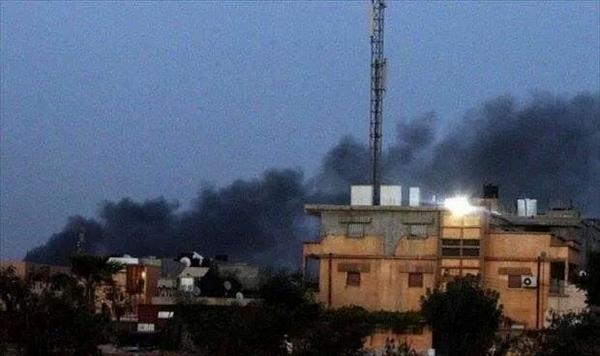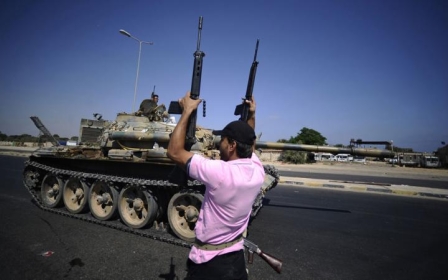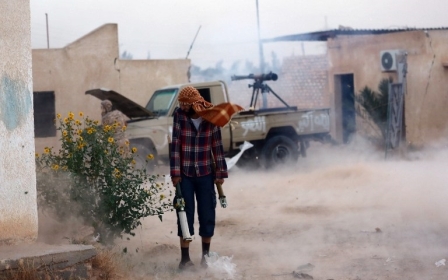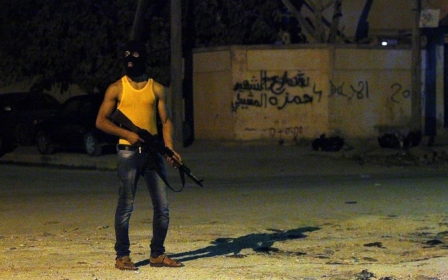Withdrawals rock Thani's new cabinet as fourth mystery airstrikes hit Libya
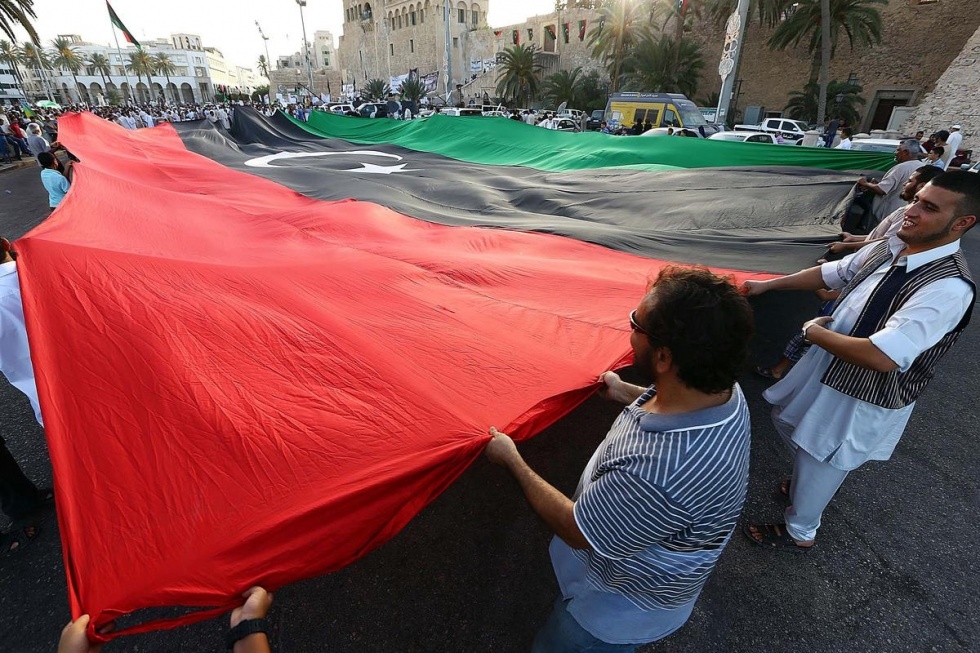
Members of the Tobruk-based House of Representatives (HoR) “wept with joy” after they managed to sign off on a new parliament with a huge majority on Monday night, a deputy said.
As the HoR struggles to contain the Libya Dawn militias who remain in control of the capital Tripoli, news broke of a further round of strikes by unidenfitied war planes just south of the city.
Four strikes targeted sites affiliated to Libya Dawn militias on Tuesday evening, an Anadolu Agency correspondent reported. The attacks are the fourth incident of strikes by unknown planes against the group within the past month.
Hundreds of miles away in Tobruk earlier on Tuesday, the new cabinet, the second line-up in a week to be proposed by Prime Minister-designate Abdullah al-Thani, got approval from a majority of representatives, after days of fierce wrangling.
Deputies from the House of Representatives (HoR) had rejected Thani’s proposed cabinet on Wednesday, leading to intense speculation as to whether Thani, who says he leads Libya’s sole legitimate and democratically-elected political body, would be able to hold on to the top job.
He had until Saturday to suggest a new formulation of a “crisis government” for Libya, which remains in the grip of months-long battles between various rival militia groups.
The new government, agreed upon by 110 of the 112 representatives in attendance, consists of a reduced cabinet of 13 ministries including three deputy prime ministers.
However, several key positions were not filled – there will be no defence minister, with the chief of staff instead taking leadership of Libya’s armed forces.
In a return to Gaddafi-era policy, there will also be no oil minister – instead, the oil sector, which brings in the vast majority of Libya’s export earnings, will be controlled by the state-run National Oil Corp.
Two women had been in the running for the health and foreign affairs portfolios under the previous proposal, but were not included in the final line-up.
After the meeting, Benghazi representative Younis Fanoush wrote that “as soon the vote of confidence in the government was completed, they started weeping from emotion and joy and began embracing one another in a moving scene.”
Fourth mystery airstrike rocks Tripoli
Some representatives were hopeful on the eve of the formation of a Tobruk-based government by the HoR, which is locked in a bitter power struggle with the General National Congress, whose mandate elapsed several months ago but which was re-established in Tripoli in August.
As the HoR struggles to contain the Libya Dawn militias who remain in control of the capital Tripoli, news broke of a further round of strikes by unidenfitied war planes just south of the city.
Four strikes targeted sites affiliated to Libya Dawn militias on Tuesday evening, an Anadolu Agency correspondent reported.
The attacks are the fourth incident of strikes by unknown planes against Libya Dawn fighters within the past month.
Highlighting the challenge that the HoR faces in establishing power, eyewitnesses on the ground reported a number of explosions in the capital on Tuesday, and there were reports that fierce fighting had once again broken out.
Translation: Sources tell 24: Reports that bloody battles have broken out in the capital Tripoli
Highlighting the challenge that the HoR faces in establishing power, eyewitnesses on the ground reported a number of explosions in the capital on Tuesday, and there were reports that fierce fighting had once again broken out.
In a sign that the HoR may struggle to manage a smooth transition of power from the GNC, the GNC’s foreign minister took over the running of the foreign ministry headquarters in the capital on Tuesday.
Mohammed al-Ghirani, appointed foreign minister by GNC head Omar al-Hassi, said that the ministry “cannot remain closed or become absent when what we need most is for citizens to return to their normal activities.”
The foreign ministry headquarters was attacked by armed militias on 26 June.
As the new government faced setbacks in the capital, it was also rocked by a high-profile withdrawal at its temporary base in Tobruk.
The Shura Council of Warshefana, a region just south-west of Tripoli, demanded that its representatives withdraw from HoR meetings until there is a solution to the disturbances plaguing the area.
In a strongly-worded statement issued on Tuesday, the council held the defence and interior ministries responsible for “the deterioration in the security of the area”, saying the poor situation was a result of the “lack of co-ordination between the security services and relevant forces in the region.”
Fierce fighting in the area on Sunday saw Zahra Hospital evacuated, as Libya Dawn militias targeted it with a volley of at least ten missiles.
Stay informed with MEE's newsletters
Sign up to get the latest alerts, insights and analysis, starting with Turkey Unpacked
Middle East Eye delivers independent and unrivalled coverage and analysis of the Middle East, North Africa and beyond. To learn more about republishing this content and the associated fees, please fill out this form. More about MEE can be found here.


